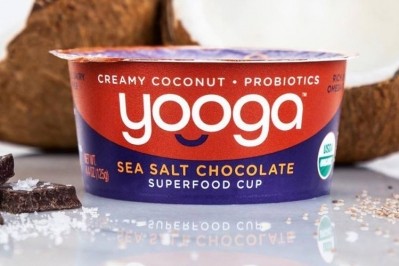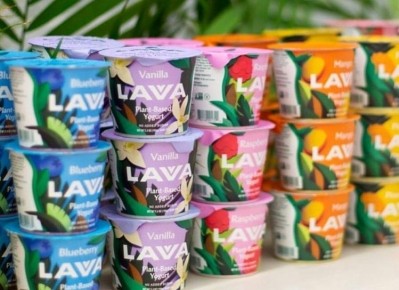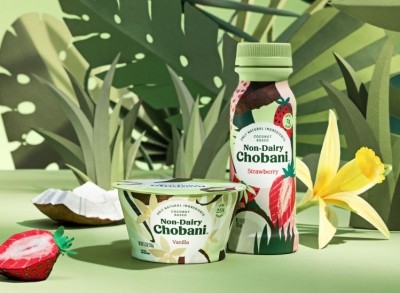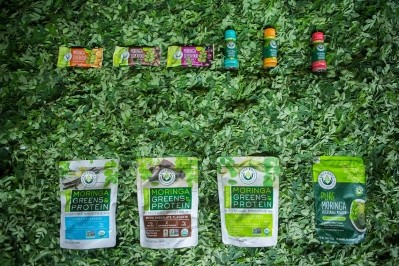Yooga has ‘drastically less sugar’ than other plant-based yogurts, claims CEO
The certified organic Yooga ‘superfood cups’ – which are made with coconut milk, fruit purees, chia seeds (a source of the short chain omega-3 fatty acid ALA - Alpha Linolenic Acid) and probiotic cultures (bacillus coagulans GBI-30 6086) – contain 6g sugar per 125g cup and 140 calories, Polishchuk told FoodNavigator-USA.
The sugar level is “drastically less than most other brands in the category,” claimed Polishchuk, who said the brand would hit stores late spring, early summer.
"The category leader has 18-20g sugar in their cups, other brands are 12 grams, others are 15 grams. The category really hasn’t cleaned up at all [when it comes to sugar reduction]. There are no low sugar options unless you’re going to buy plain yogurt, and that’s plant-based or dairy. Yooga really speaks to that consumer looking for a low sugar option.”
Made with live and active cultures doesn't necessarily mean contains probiotics
Asked about his decision to add Ganeden's BC30 probiotic strain to the product, he said consumers don't understand that yogurts featuring ‘live and active cultures’ don't necessarily contain probiotics, according to the WHO definition* of the term.
On a yogurt, all the ‘live and active cultures’ seal definitively means is that the product contained a certain amount of Lactobacillus bulgaricus and Streptococcus thermophilus (starter cultures that turn milk into yogurt) at the time of manufacture [according to the National Yogurt Association, the cultures must also be 'active' at the end of the stated shelf-life].
But unless additional named/documented probiotic strains are added, you can’t assume that products featuring the seal contain probiotics, he said.
"Consumers are not quite at the place where they understand the difference between a true probiotic and a live and active culture, the benefits that consumers expect to receive from a probiotic is not what they actually get from a live and active cultures product."
Omega-3s
Asked how the chia seeds impacted the texture of the products, he said:
“We have 1,000mg of plant-based omega-3s from very finely ground chia seeds. From the market research we did, we learned that there is a segment of consumers that doesn’t really love the consistency of whole chia seeds when they are soaked in a liquid and so we’ve been able to deliver on the functionality that consumers expect from chia and overcome the textural issues.”
Chia Viva!
Yooga draws from the functionality of Chia Viva! - a chia-based pudding brand launched by Polishchuk in 2015 - "namely heart healthy coconut fats and plant-based omega 3's, and with the addition of true probiotics, is designed to play and win at shelf in a much larger and faster moving category - plant-based yogurt," he explained.
He added: "Chia Viva! is currently being optimized into a slight smaller serving size in order to hit $1.99 at shelf. We're also going through a slight refresh on the brand [with San Francisco-based branding and packaging design firm Voicebox, which also worked on Yooga] and it will be certified organic as well. Finally, the sugar is coming down into the high single digits. The updated Chia Viva! will start shipping this summer."
*WHAT ARE PROBIOTICS? According to the World Health Organization, probiotics are “live microorganisms that, when administered in adequate amounts, confer a health benefit on the host.”
When you think about probiotics, you need to think about the genus, the species and the strain (and no two strains are the same), says the International Probiotics Association. For example, for Lactobacillus rhamnosus GG (often referred to as LGG), the genus is Lactobacillus, the species is rhamnosus and the strain is GG.



















